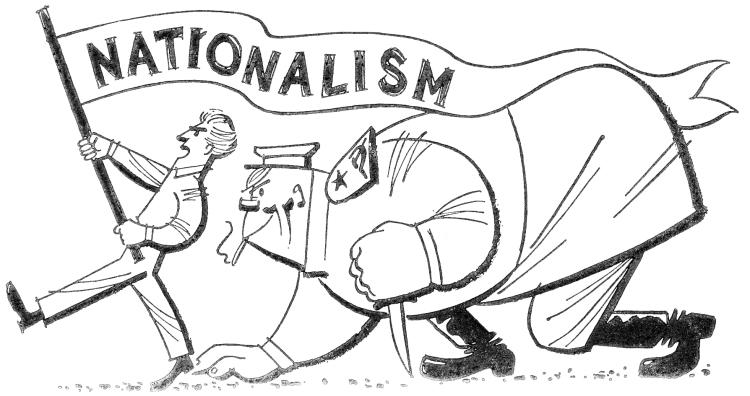
Introduction:
Nationalism is a complex and profound concept, one that revolves around a profound affection for, loyalty to, and pride in one's nation. It encapsulates a shared identity, culture, history, and destiny that binds individuals together, transcending differences of region, ethnicity, and religion. Nationalism is a force that has left an indelible mark on the modern world, profoundly impacting politics, economics, and social dynamics. In this article, we delve into the various facets of nationalism, examining its origins, expressions, and its profound influence on societies.
I. Origins of Nationalism:
The roots of nationalism can be traced to the late 18th and 19th centuries, a time marked by revolutions and the dismantling of empires. The idea of nation-states gained momentum as people sought to liberate themselves from oppressive colonial rule and unite under a common banner. Pivotal events like the American Revolution (1775-1783) and the French Revolution (1789-1799) fueled the concept of self-determination and sovereign nationhood.II. Components of Nationalism:
a) Cultural Identity: At its core, nationalism is entwined with a shared cultural identity, encompassing language, customs, traditions, and art. These elements foster a profound sense of belonging and pride among citizens, reinforcing their unique national heritage.
b) Historical Narratives: A nation's history and the collective memory of its people significantly contribute to nationalist sentiment. Historical events, whether triumphant victories or arduous struggles for independence, shape a nation's identity and serve as a wellspring of inspiration.
c) Geographical Boundaries: Intrinsic to nationalism is the notion of territoriality. Precise borders provide a tangible sense of space, definitively demarcating the homeland, and fortifying the bond among citizens who deem that territory as their own.
d) Common Goals and Values: Shared aspirations and common values, such as liberty, democracy, and justice, often form the ideological bedrock of nationalism, uniting citizens towards a collective purpose.
III. Types of Nationalism:
a) Civic Nationalism: Civic nationalism pivots towards shared values, beliefs, and citizenship rather than ethnicity or heritage. It champions the inclusion of diverse populations within the nation-state, championing equal rights and opportunities for all citizens.
b) Ethnic Nationalism: In contrast, ethnic nationalism places greater emphasis on shared ethnicity, language, and cultural heritage as the cornerstone of national identity. At times, this form of nationalism can lead to exclusionary practices, as it prioritizes the ancestry and traditions of a specific group.
IV. Positive Aspects of Nationalism:
a) Unity and Solidarity: Nationalism cultivates a sense of unity and solidarity among citizens, a powerful force to surmount challenges and attain collective aspirations.
b) Cultural Preservation: It plays a pivotal role in preserving cultural traditions and languages, safeguarding them from the homogenizing forces of globalization.
c) Patriotism and Civic Duty: Nationalistic pride often begets a profound sense of patriotism and civic responsibility, motivating citizens to contribute positively to their society.
V. Negative Aspects of Nationalism:
a) Ethnocentrism and Xenophobia: Extreme nationalism can ignite ethnocentrism and xenophobia, fostering discrimination against minorities or outsiders.
b) Conflict and Aggression: In certain cases, excessive nationalism may lead to aggression and territorial disputes between nations.
c) Suppression of Diversity: An overemphasis on national identity may suppress sub-national identities and the diversity within the nation.
VI. Impact on Global Politics:
Nationalism reverberates throughout international relations and global politics, influencing diplomacy, trade, and alliances, both for cooperation and conflict between nations.


